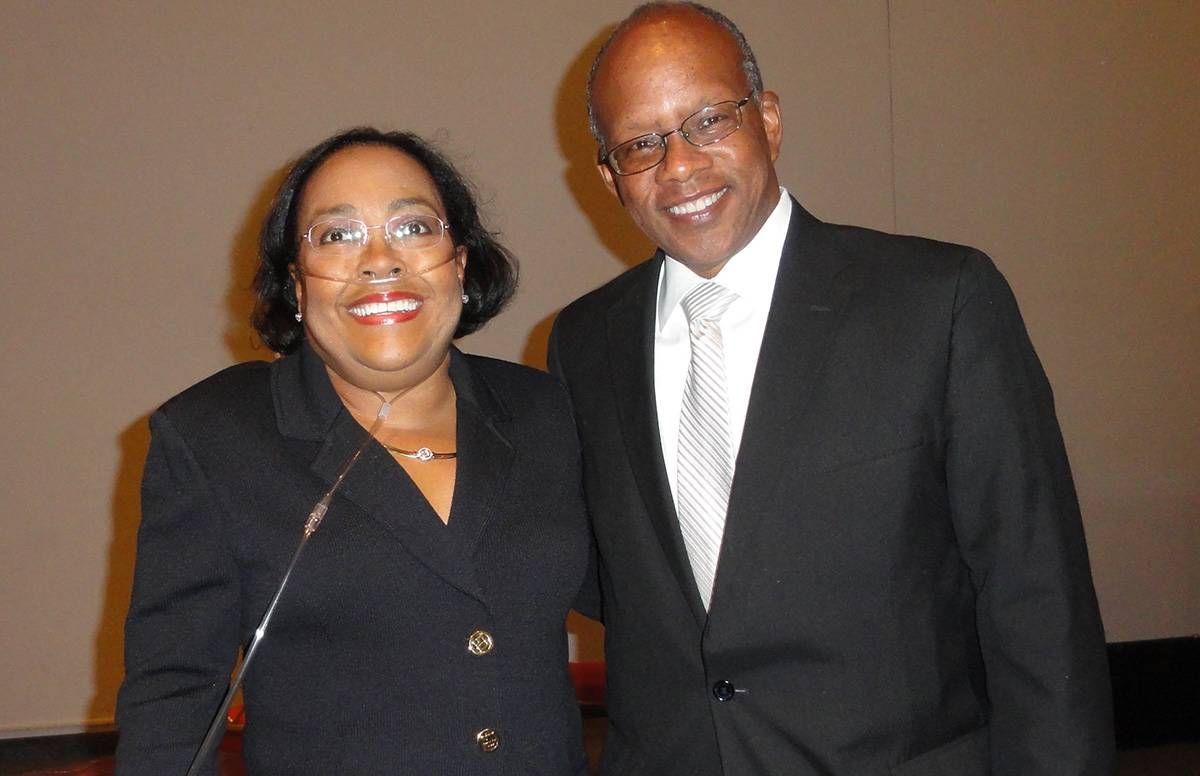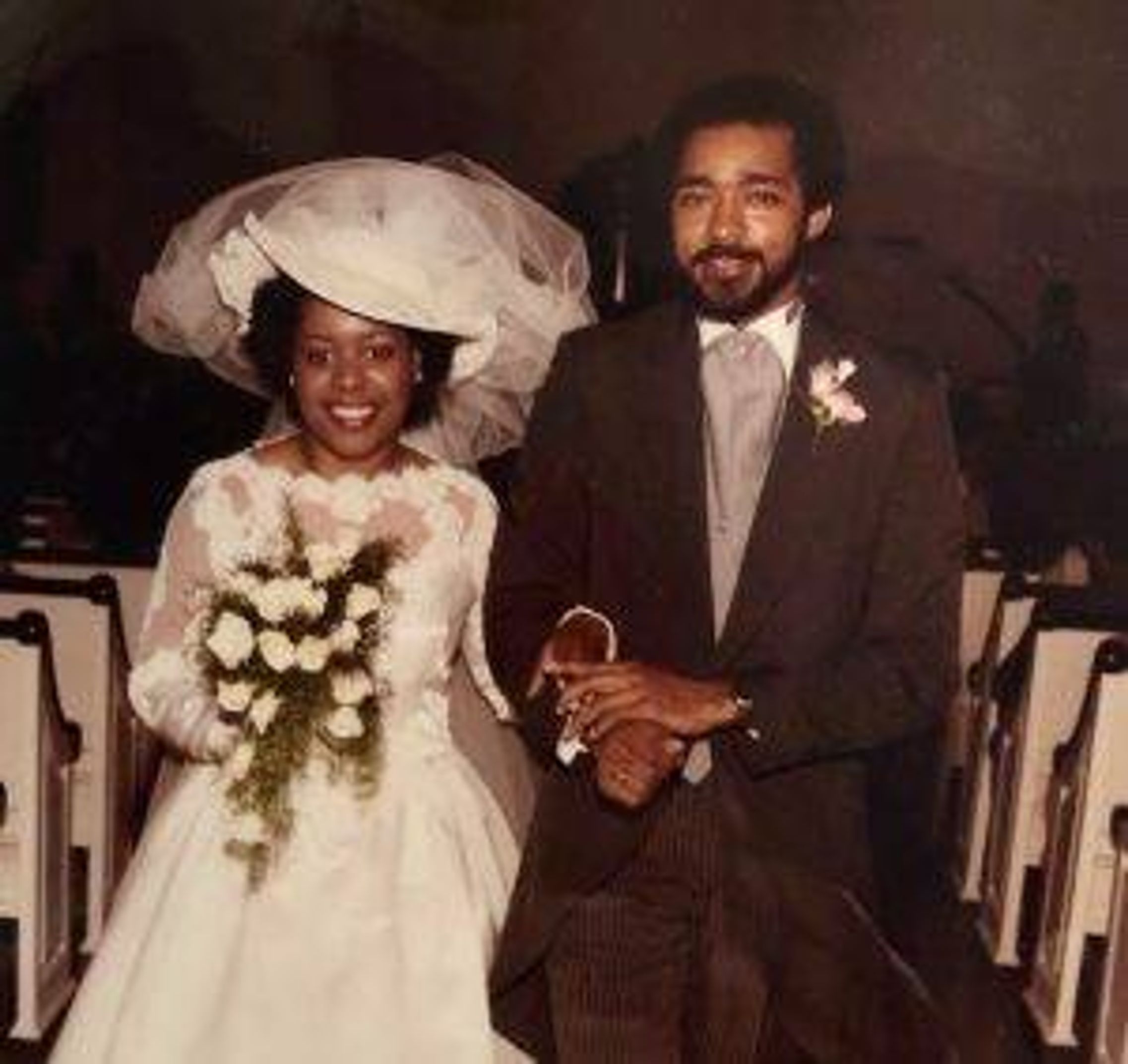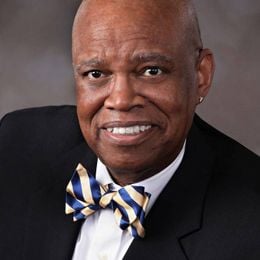Hidden Truth: 2.3 Million Black Men Are Family Caregivers
Meet two who say Black men need to stop trying to do it all by themselves
(Editor's note: This story is part of Taking Care, an ongoing series on the diverse lives of America's family caregivers, with support from The John A. Hartford Foundation.)

Former telecom executive Howard Woolley, who now heads a Washington, D.C.-based consulting firm, was the primary caretaker for his late wife, Gail, who suffered from sickle cell anemia. Jackie Greene, a Washington, D.C. consultant and former media executive, spent 18 months as the sole caregiver for his wife Marcia, who eventually succumbed to cancer.
One of the biggest problems faced by Black men is that they are reluctant to ask for help.
Woolley and Greene are among a somewhat silent group of 2.3 million Black men who are the primary caretakers for a family member — whether it's a spouse, parent, other relative or even a friend.
Although the average U.S. caregiver is a 49-year-old woman, 40% — or 16 million — are male. More than 15% of African American caregivers are men, according to an AARP report on caregiving to be released in November.
Perception vs. Reality
"You rarely see a report talking about African American male caregivers," said Rita Choula, director of caregiving at the AARP Public Policy Institute. "There is this perception of males in general that they are not family caregivers. Or our expectation of the male caregiver is that there is a brother that slides in and pays the bills and slides back out."
But AARP's research suggests otherwise.
"They are bathing mothers, making meals and conducting complicated wound care or medication regimens," Choula said.
According to the report, the average African American male caregiver is 48. A third are caring for a parent or parent-in-law and a quarter are caring for spouses or partners.
"But they are also caring for friends, neighbors and grandparents," said Choula.
Michael Williams, a retired Philadelphia EMT and caregiver support group facilitator, believes many Black men are uncomfortable being caregivers because of people's perceptions that men in general, and Black men in particular, don't serve as caregivers.
"Since people don't think of them as caregivers, they know that and don't feel comfortable stepping out there and being a caregiver, Williams said. "They know people find it unusual."
Doing It Alone
The stress of caregiving can be enormous.
Williams cited a Stanford University study which found the stress and depression so great that 40% of Alzheimer's caregivers die before the people they are caring for. A woman in one of Williams' support groups had to be hospitalized with bleeding on the brain, the result of stress, he said.
It wasn't until she died that "things crashed," and he sought help from support groups.
Yet, one of the biggest problems faced by Black men is that they are reluctant to ask for help.
"Not only Black men, but Black people in general don't ask for help," said Williams, who is African American.
He was an only child and sole caregiver for his mother, who suffered from Alzheimer's. "I was in my fifties, so quitting my job was not an option," Williams said. "But I was scolded by friends and relatives for putting my mother in a facility. They said I should have quit my job and stayed home."
Fredericka Waugh, a Black former executive at the Delaware Valley Chapter of the Alzheimer's Association in Philadelphia and a support group facilitator, agreed with Williams' assessment.
"My experience has been that Black males don't reach out soon enough," she said. "African Americans (in general) don't reach out soon enough, especially for a diagnosis. Sometimes they are not aware of the resources. Sometimes they don't want anyone to know that their loved one has some form of dementia."
Williams, a support group facilitator since 2012, said and maybe 1% of the participants are Black men. "Over the past eight years, I've talked to two [Black] men in support groups. One came in twice. The other only came in once," he said.
George Wheeler, a Washington, D.C. clinical psychiatrist and a caregiver for his mother, said many Black men feel too vulnerable to open up and talk about how they feel. "They are guarded," he noted. "They don't go into therapy because they don't feel like it will work for them."
It can be especially difficult for men in general, but Black men in particular, to take care of their mothers, especially when they have to help with some of the more personal tasks, like bathing or helping them go to the bathroom.
"It's hard for them," Waugh said. "It's an emotional thing. They find it much easier to take care of their wives."
According to the AARP report, 69% Black male caregivers are employed, and at least half say that caring for their loved ones has had an impact on their jobs — whether that meant having to leave early, take time off from work or being forced to give up their jobs to care for their loved ones full time.
Keeping Caregiving Stress Private
Greene spent months driving his wife, Marcia, from their home to Johns Hopkins Hospital in Baltimore, back home to drop her off, and then to his job in northern Virginia.

"I had been driving for three hours before I got to work," he said. At one point, he had to literally live at the hospital after her surgery so he could meet with doctors when they made their rounds at 6 a.m. His boss told him later that he had no idea how sick Greene's wife was because he was at work every day as usual.
He told a few close friends, but did not talk much about what he was going through. "The whole time I was on adrenalin," Greene said. It wasn't until she died that "things crashed," and he sought help from support groups.
Woolley found support talking to family and friends. He said his wife, Gail, warned him when they met at Syracuse University that he should be prepared for periodic trips to the hospital because of her disease.
They lived mostly uneventful lives for years, but an ankle operation "went bad" and resulted in an amputation and left Gail in a wheelchair. She later required an oxygen tank full time as the sickle cell affected her respiratory functions. As she lost her independence, he became more of a caregiver and eventually retired. When Gail died, they had been married for 34 years.
Most of his friends were aware of the situation. "I found other people that had spouses dealing with other things," Woolley said. "A colleague had a husband who was dealing with a debilitating disease. Gail had a number of friends who understood her situation. I would talk to them. I had the support of friends."
Williams said Black men need to stop trying to do it all by themselves.
"Don't feel like you've got to handle it by yourself," he said. "A lot of men, their pride won't let them ask for help. There are a lot of people who offer help, and they turn it down. If someone offers help, accept it."


